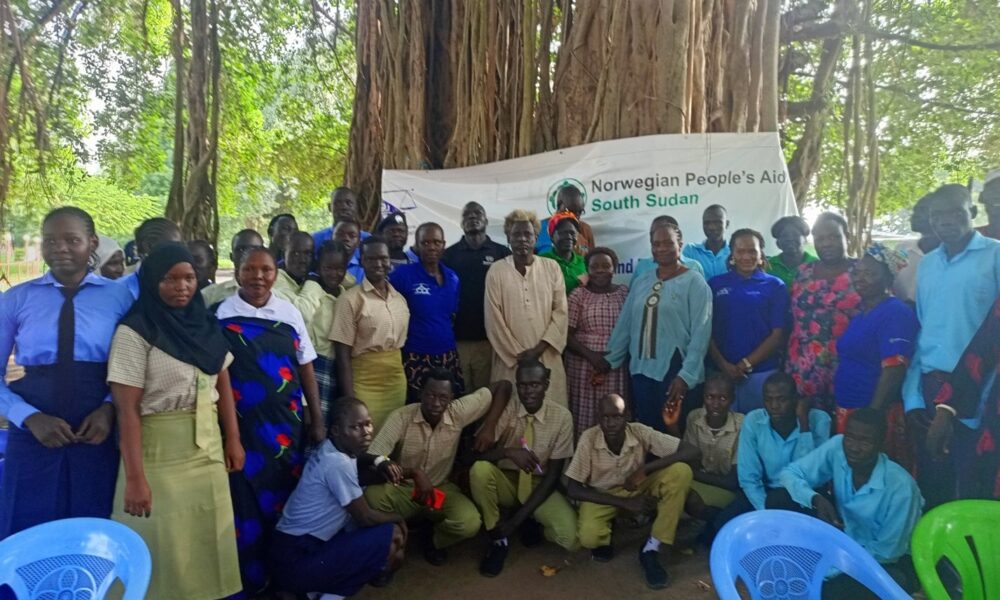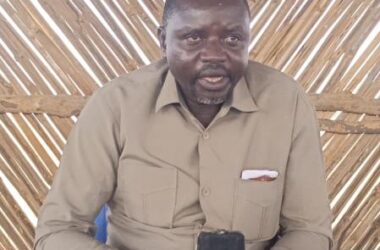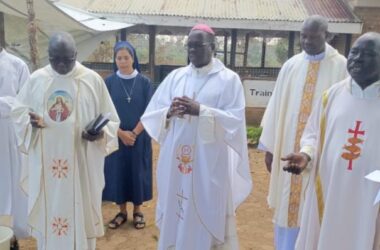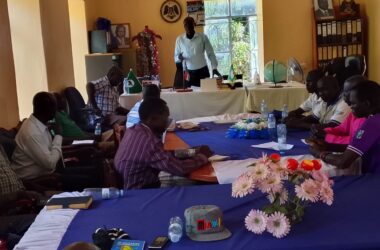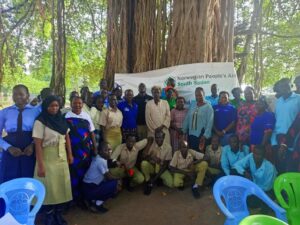
By Alan Clement
A recent civic education awareness event on South Sudan’s newly enacted transitional justice laws has shed light on the pervasive issues of sexual and gender-based violence (SGBV) in Terekeka county.
The event led by the Centre for Inclusive Governance, Peace and Justice with funds from Norwegian People’s Aid (NPA), is part of a wider initiative across Central Equatoria State aimed at fostering open dialogue around sexual and gender-based violence (SGBV) and transitional justice.
It focused on the Compensation and Reparation Authority (CRA) Act, 2024 and the Commission for Truth, Healing and Reconciliation (CTRH) Act, 2024 which are central components of South Sudan’s transitional justice framework designed to address historic and ongoing injustices through national reconciliation, documentation of human rights abuses, and provision of reparations to victims.
Speaking during the event which comes as Terekeka continues to struggle with persistent gender-based violence, low education levels particularly among girls and limited access to justice, Mary Sadia, a Member of Parliament for Terekeka County in the CES Legislative assembly, highlighted the alarming state of violence against women.
She specifically cited a case in Tali payam where a woman was shot as a “retaliation resulting from inter-clan conflict,” and called for the awareness activities to be expanded to all eight payams of the county.
“We cannot leave out boys and men in these programs,” Sadia said. “They are often the perpetrators, and unless they are part of the conversation, we will not break the cycle of violence,’ Sadia said while confirming that, “Terekeka has been included in the survivors’ budget in Juba.” She also called for the introduction of mobile schools for children, particularly in cattle camps, to improve education and reduce vulnerabilities.
The Acting Executive Director, Thomas Salah Anthony, speaking on behalf of the absent county commissioner, underlined the administration’s commitment to addressing both conflict and education challenges. He said, “Terekeka ranks lowest in the education of girls in Central Equatoria,” announcing new resolutions designed to improve peace and education, including controlling traditional dances.
“The county authorities have resolved that traditional dances will be held at the freedom square on non-working days and end at 6 PM,” Salah said emphasizing that traditional dances often lead to early pregnancies.
Speakers from the Terekeka Women Association and the Relief and Rehabilitation Commission also shared their concerns. Mama Asunta, the association’s chairlady, expressed her excitement about the dialogues but also called for an end to late-night traditional dances. “Most of those involved in the dances are school-going children. It hurts to see girls dropping out and getting pregnant so young,” she said.
Enyasio Lukudu, the Deputy Acting Coordinator for the Relief and Rehabilitation Commission noted that many people in Terekeka are “marginalized and traumatized” but are often afraid to report violence to the police or women’s desk. He appealed to implementing partners to design longer-lasting programs, as short-term projects are insufficient.
“There are many victims who don’t know how to report violence or even trust the systems in place,” said a Lukudu. “We need longer-term projects, not one-off events to be able to help survivors properly,” he added.
The CIGPJ project coordinator, Nunu Diana Alison, reiterated the need to promote a victim-centered approach and fostering open dialogues. She, along with Nancy Adokorach of NPA,

